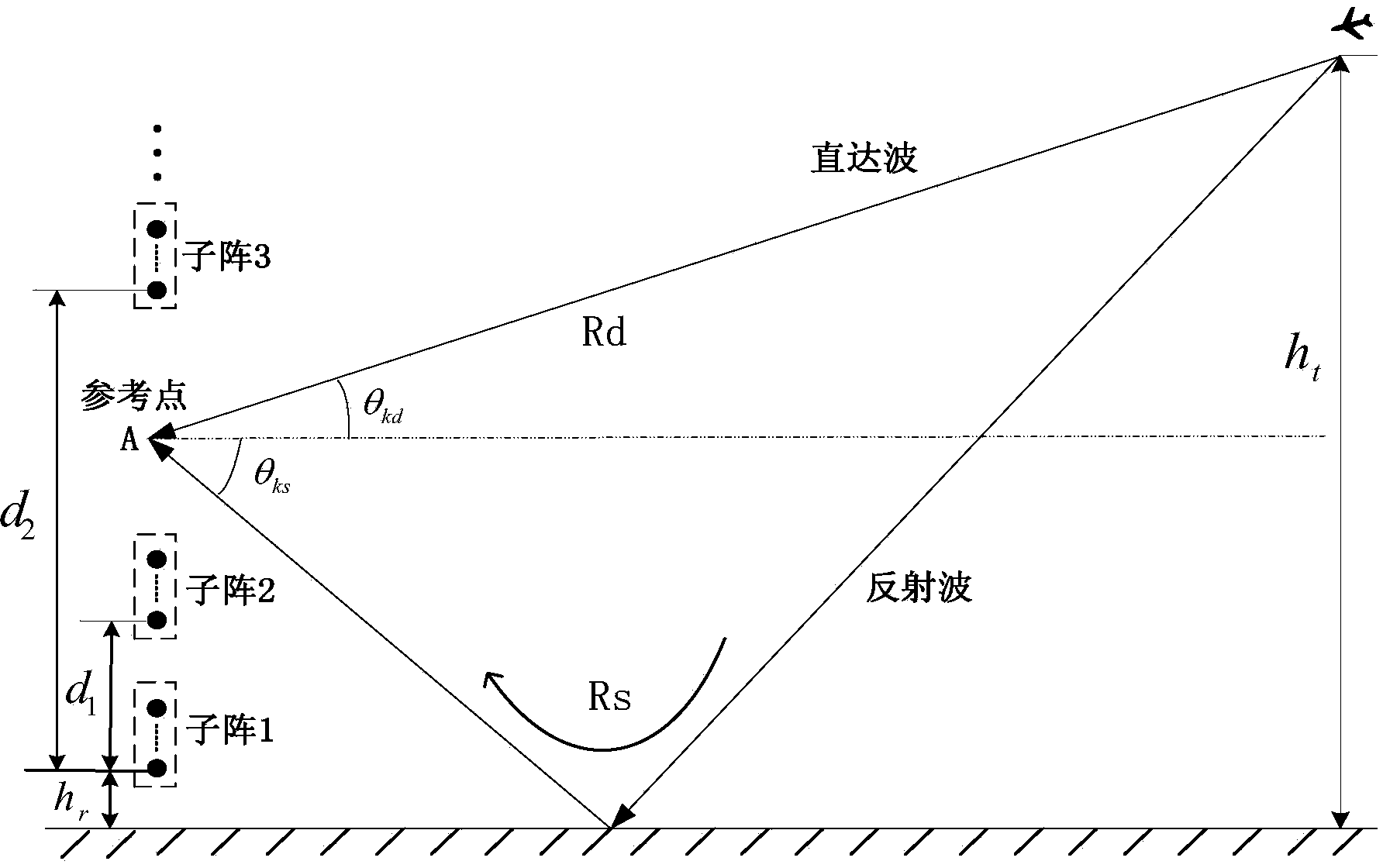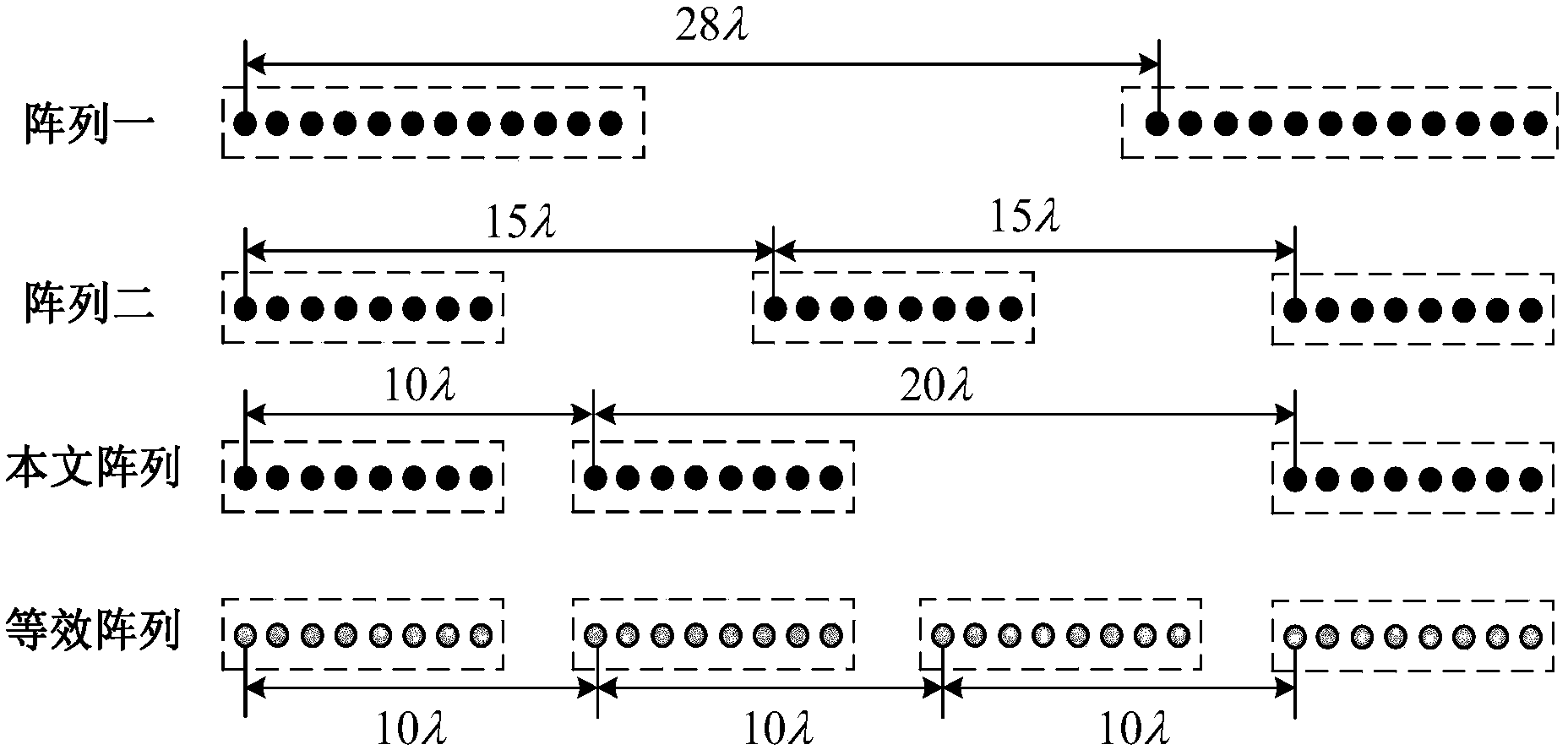Meter-wave radar low elevation estimating method based on minimum redundancy linear sparse submatrix
A minimum redundancy, meter-wave radar technology, applied to radio wave measurement systems, instruments, etc., can solve problems such as poor array angle measurement performance, large estimation error, target positioning and tracking failure, etc., to achieve good angle measurement performance and low signal accuracy Effect of Noise Ratio Threshold
- Summary
- Abstract
- Description
- Claims
- Application Information
AI Technical Summary
Problems solved by technology
Method used
Image
Examples
Embodiment Construction
[0029] refer to figure 1 , illustrating that the present invention is based on the minimum redundant linear sparse subarray metric wave radar low elevation angle estimation method, which includes the following specific implementation steps:
[0030] Step 1: Construct the minimum redundant linear sparse sub-array meter wave radar with P uniform linear arrays sparsely distributed in the form of minimum redundant linear arrays.
[0031] In the present invention, the minimum redundant linear sparse subarray meter wave radar and the low elevation angle target signal model are as follows figure 2 shown. figure 2 The P sub-arrays of the minimum redundant linear sparse sub-array meter-wave radar are sparsely distributed according to the minimum redundant linear array, each sub-array has a uniform linear array with the same structure, the number of sub-array elements is M, and the distance between the array elements in the sub-array is d(d≤λ / 2), λ is the wavelength of the incident ...
PUM
 Login to View More
Login to View More Abstract
Description
Claims
Application Information
 Login to View More
Login to View More - R&D
- Intellectual Property
- Life Sciences
- Materials
- Tech Scout
- Unparalleled Data Quality
- Higher Quality Content
- 60% Fewer Hallucinations
Browse by: Latest US Patents, China's latest patents, Technical Efficacy Thesaurus, Application Domain, Technology Topic, Popular Technical Reports.
© 2025 PatSnap. All rights reserved.Legal|Privacy policy|Modern Slavery Act Transparency Statement|Sitemap|About US| Contact US: help@patsnap.com



